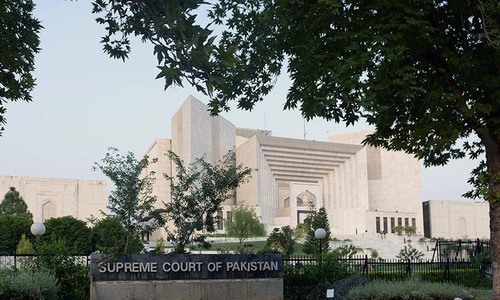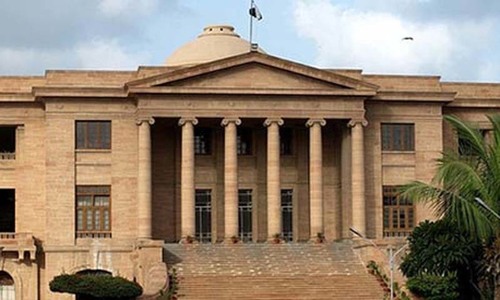ISLAMABAD: Supreme Court Chief Justice Anwar Zaheer Jamali observed on Tuesday that the concept of secret ballot is alien to Islam and is rather, derived from the west. “The method of secret ballot is a western concept and has nothing to do with Islam,” the chief justice observed, adding that the open ballot system discourages hypocrisy.
The observation came during the hearing of an appeal instituted by the Sindh government against the Sindh High Court’s Feb 10 judgment which, while deciding the applications of the Muttahida Qaumi Movement and the PML-F, had declared as void the recent amendments in the local government law, whereby secret balloting was replaced with a show of hands for electing mayors, deputy mayors and other local government representatives in the province.
On Feb 17, a three-judge Supreme Court bench headed by the chief justice had stayed the upcoming elections in Sindh to elect mayors, deputy mayors, chairmen, vice chairmen and members of reserved seats in the recently-elected local government bodies.
The last three years have seen a raging debate on whether the local government elections should be held in an open manner or through secret balloting, the chief justice regretted, while also questioning the need for amendments in the Sindh Local Government (Amendment) Act 2013.
Three-judge SC bench hearing Sindh government’s appeal against high court’s judgment that annulled the third amendment in Sindh’s LG law
Laws should be enacted for greater public good and welfare of the State, but governments have made legislative business a mockery since they introduced laws that only suited them and in the end, shifted the entire burden on the judiciary to resolve the controversy that emerged later, the chief justice said. The real purpose of amending laws should not be to cause destruction, but provide relief and welfare to the people, he added.
One party claims that certain laws were introduced in the statute book with a mala fide intent while the other defends by asserting that they pushed forward the law on good intentions. Such a situation creates mistrust among the people, the chief justice observed.
Meanwhile, senior counsel Farooq H Naek, who represents the Sindh government, insisted in his closing arguments that the greatest pillar in a democratic system was holding of free, fair and transparent elections.
Mr Naek regretted that the petitioners had only challenged before the high court certain provisions of the June 17, 2016, notification in the SLGA, under which indirect elections of mayors and deputy mayors were substituted by show of hands instead of secret ballot, but the high court had scrapped the entire third amendment.
Thus with a one stroke of the pen, the entire procedure of appointing tribunals for resolving election disputes had also been sent home, he said.
In its judgment, the high court had also not given any reason for virtually eliminating the representation of women as well as youth on reserved seats by holding the Sindh Local Government (Third Amendment) Act 2016 as ultra vires without any prayer, he said.
The counsel explained that the initial elections of the local government were direct elections in which voters or electors cast their votes to elect independent candidates. While the elections of the chairman, vice chairman etc were indirect where the common citizen or electors had no role, adding it was the party that nominated a person to contest the polls.
The counsel said that the power to make laws for the purpose of devolution of administrative and financial powers rested with the province, questioning whether the show of hands will negate the Constitution and encourage corruption.
It is not the job of the Election Commission of Pakistan to make laws since such power lies with the provincial governments, the counsel said.
Later, Additional Attorney General Muhammad Waqar Rana told the court that the federal government was opposed to the SHC judgment and that Article 226 of the constitution, which directed to conduct elections other than that of the prime minister by secret ballot, does not apply to the local government elections. Similarly, Article 140A, which pertained to the conduct of local government elections, did not envisage polls through secret ballot.
Khyber Pakhtunkhwa Advocate General Abdul Latif Yousafzai argued that any decision of the Supreme Court should not affect the already-concluded local government elections in KP where even the elections of nazim and naib nazim had been finalised.
Published in Dawn, April 6th, 2016












































